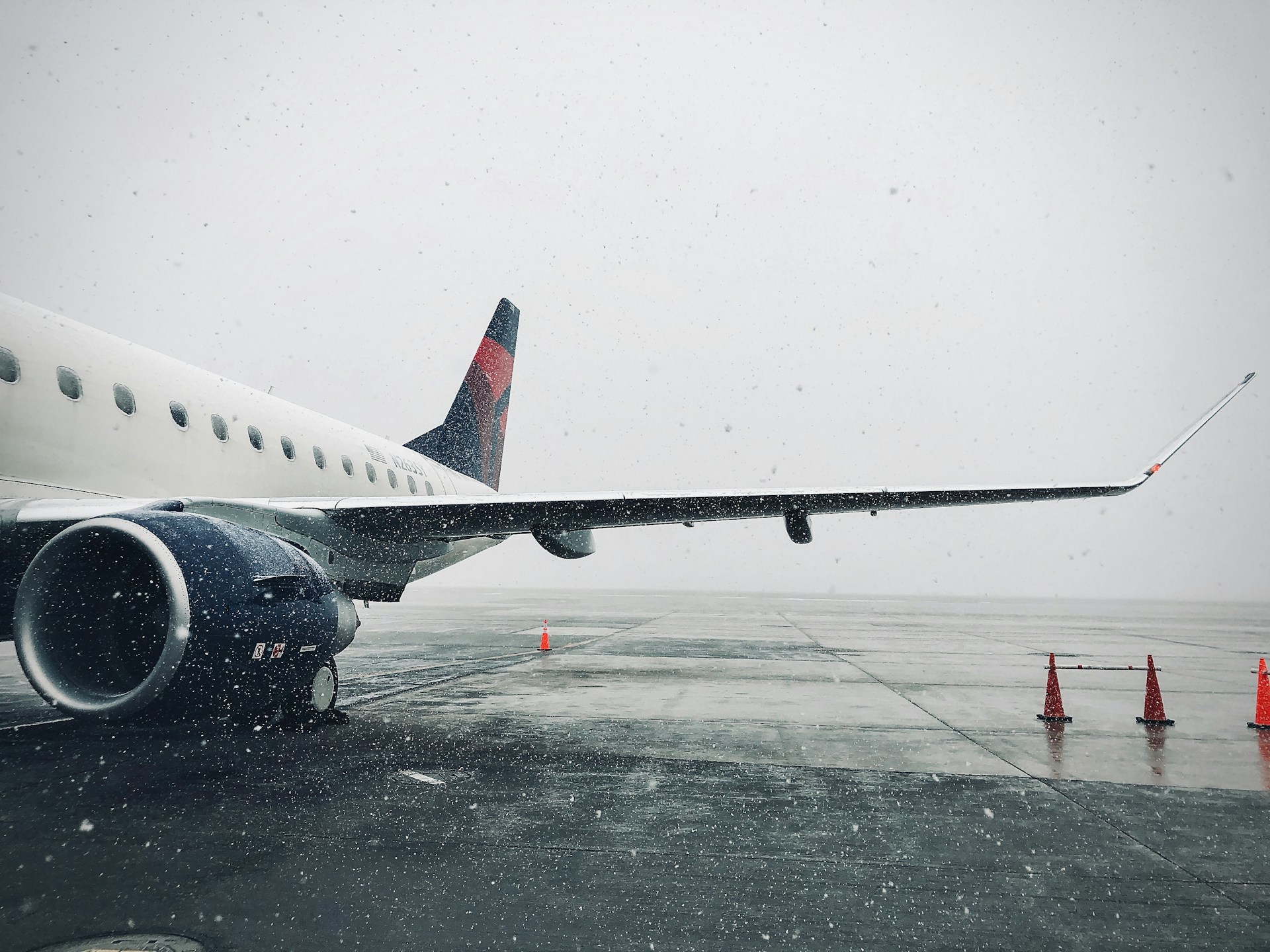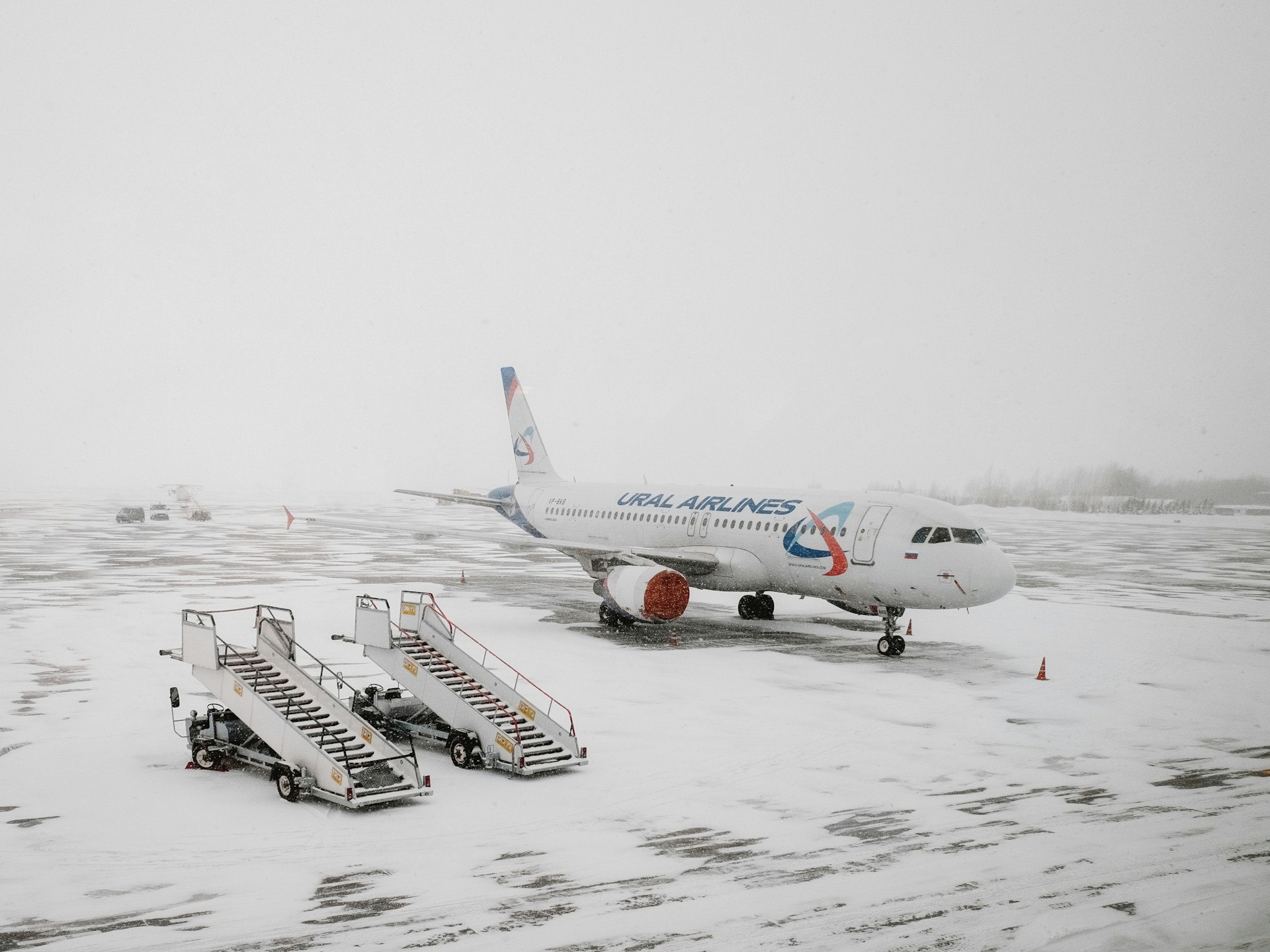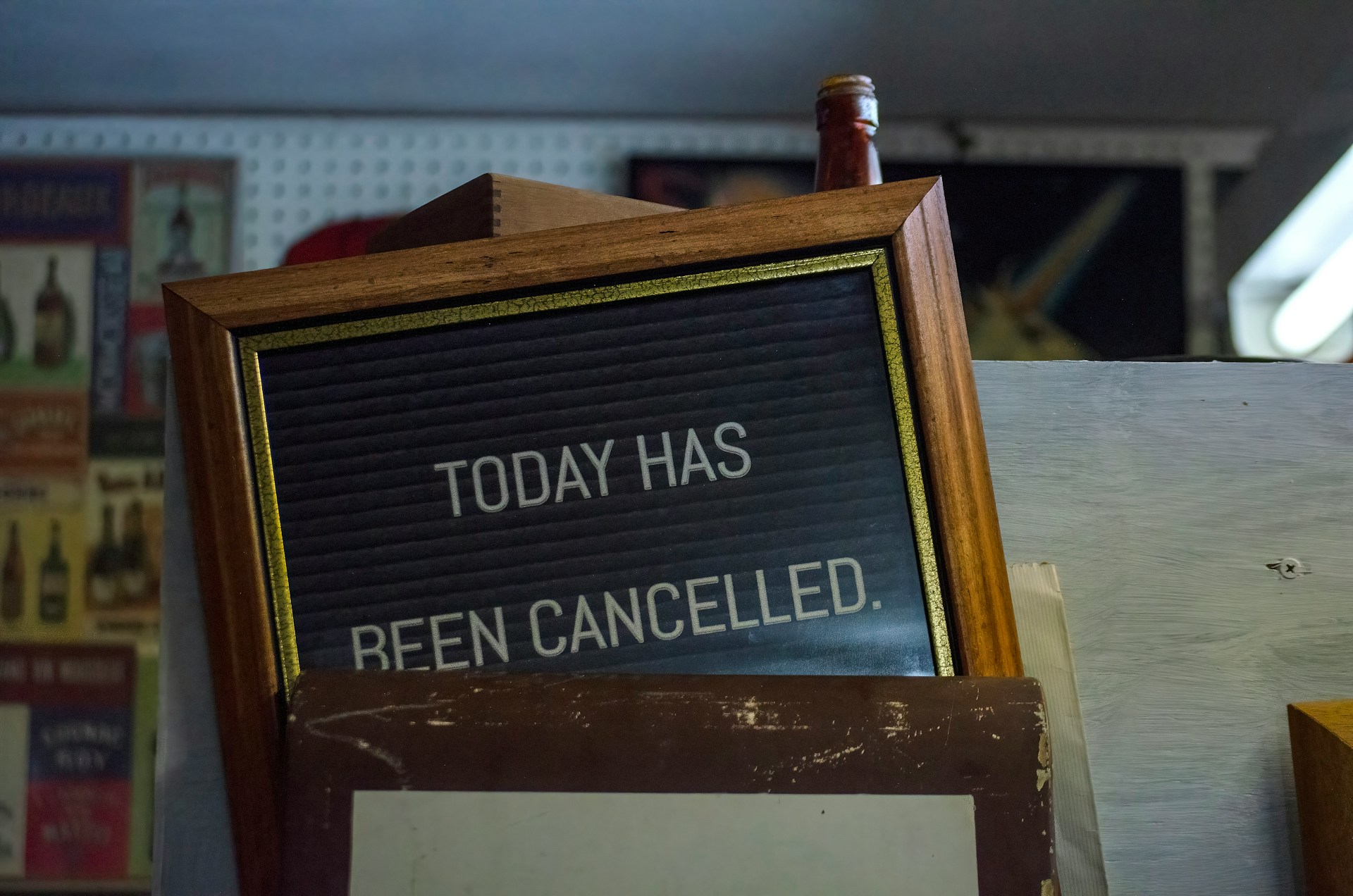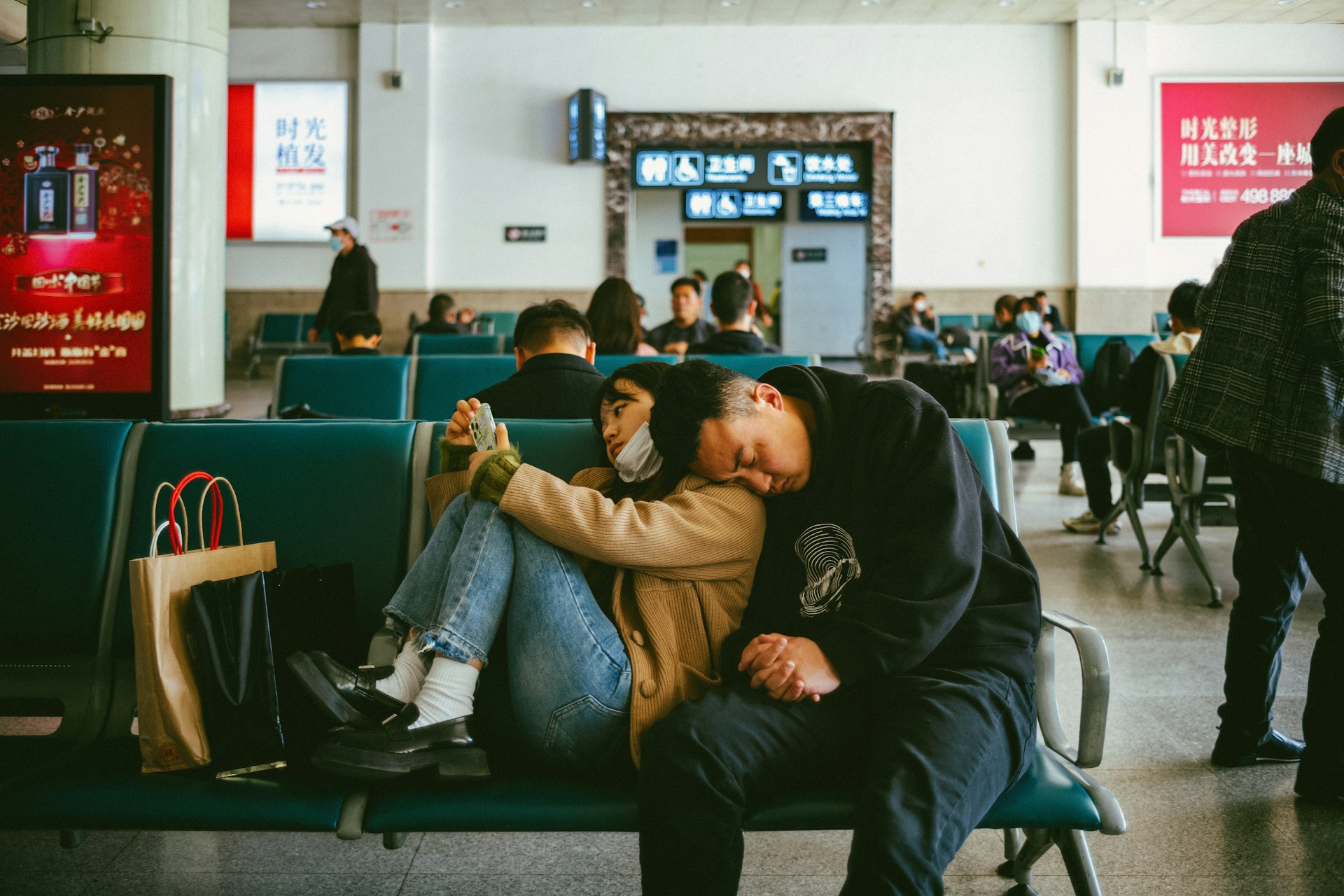
You’ve battled traffic and airport parking, navigated security like a pro, maybe even treated yourself to that overpriced airport coffee, and you’re finally at the gate, buzzing with excitement for your trip. Then, your eyes drift to the departure board, and BAM! That soul-crushing word appears next to your flight: “DELAYED.” Or worse, the dreaded “CANCELLED.” Ugh, it’s the travel equivalent of a sudden rainstorm on your perfectly planned picnic, right? Instant mood killer.
But hey, before you let that wave of frustration completely wash over you, take a deep breath. Seriously. Panicking is like trying to put out a fire with gasoline – it just makes things messier. While a flight disruption is a massive pain, it’s not the end of the world, and there are ways to handle it like a seasoned traveler. Let’s walk through what to do when the airport throws you a curveball.
The Initial “Seriously?!” Moment: What to Do First
First things first, after that initial internal (or maybe not-so-internal) groan, your mission is to get accurate information. The departure board is a starting point, but you’ll want to dig a little deeper. Often, the airline’s app on your phone will be your speediest source for updates – many will send push notifications directly to you if you’re checked in. Keep an ear out for gate announcements too, as agents will usually provide some initial details or instructions.
If the digital world and the PA system are failing you, you’ll probably need to chat with an airline representative. Brace yourself, as lines can form faster than you can say “compensation.” If the queue at your gate looks like a pilgrimage, check if there’s another gate for the same airline nearby with fewer people, or consider heading to the airline’s main customer service desk. A little strategic line-dodging can save you a lot of standing-around time.
Playing Detective: Why is This Happening (and Why Should You Care)?
Once you get some clarity, try to find out why your flight is delayed or cancelled. This isn’t just about satisfying your curiosity; the reason behind the disruption is a pretty big deal because it directly impacts what the airline is (and isn’t) obligated to do for you.
Broadly, delays and cancellations fall into two camps:
- Things the Airline Can Control: Think mechanical issues with the plane, not having enough crew to operate the flight, or other operational hiccups. When it’s their fault, airlines generally have more responsibility to take care of you.
- Things Beyond Their Control: This is the “Acts of God” category – nasty weather, directives from air traffic control, unexpected security threats, or widespread airport meltdowns. In these situations, airlines have fewer obligations, though they should still try to help you get rebooked.
Staying in the Know: Your Information Arsenal
When your travel plans are up in the air (figuratively, not literally, unfortunately), information is your superpower. Keep refreshing that airline app and their website. Sometimes, rebooking options pop up there first, letting you sidestep those long customer service lines altogether. The airport departure screens are still your friend for general flight statuses, and if you signed up for text or email alerts from the airline when you booked, those will be pinging your phone with updates.
Believe it or not, sometimes an airline’s official Twitter feed can be a surprisingly quick source of info during big disruptions. You can even try sending them a direct message for help, though how quickly they respond can be a bit of a lottery.
Know Your Stuff: What Are Your Rights as a Traveler?
This is where things can feel a bit like navigating a maze, especially if you’re flying primarily within the USA, where passenger rights aren’t as set in stone as in places like Europe.
Flying in the USA? Here’s the Lowdown (Based on DOT Rules):
Unfortunately, unlike in Europe, U.S. airlines aren’t automatically required to give you cash compensation just because your flight is late. What you are entitled to is largely dictated by each airline’s individual Contract of Carriage (sometimes called “Conditions of Carriage”). This is that super long, fine-print document you technically agree to when you buy a ticket. You can usually find it lurking on the airline’s website – it’s worth a skim if you’re really in a bind.
However, the Department of Transportation (DOT) does have some rules. If your flight is significantly delayed or outright cancelled, and you decide not to travel on whatever alternative flight the airline offers, you are absolutely entitled to a full refund for the unused part of your ticket. This applies even if you bought a non-refundable fare, and it includes any extra fees you paid for things like choosing your seat or checking a bag.
Airlines will almost always try to get you on their next available flight to your destination without charging you extra. Some might even put you on a partner airline if their own flights are booked solid for ages, but that’s usually at their discretion.
What about food and a place to sleep if you’re stranded? For delays or cancellations that are the airline’s fault (those “controllable” ones we talked about), many will offer meal vouchers if the delay is significant (think 2-4 hours, it varies by airline) and a hotel room for overnight delays if you’re not in your hometown. This is more about their company policy than a strict legal requirement from the DOT for every situation. If the delay is due to something uncontrollable, like a blizzard, they’re generally not required to provide these perks, though some might offer discounted hotel rates as a goodwill gesture. It never, ever hurts to ask politely!
And if you find yourself stuck on the plane on the tarmac for what feels like an eternity? The DOT has rules for that too. Airlines can’t keep you cooped up on the tarmac for more than three hours for domestic flights (or four hours for international ones) without letting you get off. They also have to give you food and water after two hours and make sure the bathrooms are working and the cabin temperature is bearable.
Jetting to or From Europe? You Might Have More Clout (Thanks, EC 261!):
If your travel plans involve Europe – specifically, if your flight is to the EU on an EU-based airline, from the EU on any airline, or within the EU – you’re covered by a nifty regulation called EC 261. This generally gives passengers stronger rights.
You’re typically entitled to:
- Care: This means meals and refreshments, and if necessary, hotel accommodation, depending on how long you’re delayed and the distance of your flight.
- A Choice: You can opt for a full refund or to be re-routed to your final destination as soon as possible (or at a later date that works for you, if there are seats).
- Compensation: Here’s the big one. For cancellations or delays that make you arrive at your destination more than 3 hours late, you might be eligible for cash compensation (ranging from €250 to €600) depending on the flight distance. The major catch? This doesn’t apply if the disruption was due to “extraordinary circumstances” that the airline couldn’t have avoided even if they took all reasonable measures – think really extreme weather, political unrest, genuine security risks, or air traffic control strikes.
Getting Back in the Air: The Art of Rebooking
Okay, so your original flight is definitely not happening. Time to shift into rebooking mode. Don’t just plant yourself at the end of one enormous queue and hope for the best! Attack this problem from multiple angles.
- Your Phone is Your Friend: Seriously, keep checking that airline app or website. Often, you can rebook yourself right there and save yourself a ton of hassle.
- Dial ‘Em Up: While you’re physically waiting in one line, get on the phone with the airline’s customer service. Use your speakerphone so you can still pay attention to what’s happening around you. If you have elite status with the airline, they might have a dedicated (and faster) phone line for you.
- The Old-Fashioned Way: The gate agent or the main customer service desk is still an option. Just remember to pack your patience and be polite – these folks are dealing with a lot of stressed-out people.
- Lounge Lizards Rejoice: If you have access to an airline lounge (thanks to your frequent flyer status, a fancy credit card, or by buying a day pass), the agents in there can often do everything a gate agent can, but usually with much, much shorter lines.
When you do get to talk to someone, being proactive and flexible can work wonders. While you’re waiting, do a quick search on the airline’s website (or even other airlines) for alternative flights. If you find a good option, suggest it to the agent. Could you fly into a nearby airport if your original one is a mess? Or if your destination city has a couple of airports, would one of those work? It doesn’t hurt to politely ask if they can put you on a competitor’s flight if their own are full for an unreasonable amount of time. They aren’t always obligated to, but if you don’t ask, you don’t get!
Making the Best of a Bad Airport Situation
If it looks like you’re going to be camping out at the airport for a while, you might as well try to make yourself as comfortable as possible. Grab some food and water, especially if the airline isn’t handing out vouchers (or even if they are and the wait is epic). Find an outlet to charge your phone and other devices – your phone is your command center right now. If you have a portable power bank, now’s its time to shine.
Try to find a relatively comfortable spot. Some airports have designated quiet zones or even rest areas if you’re lucky. Break out that book you’ve been meaning to read, catch up on downloaded movies or shows, or if you must, get some work done. And don’t forget to let anyone who’s expecting you – family, friends, your hotel, your car rental company – know about your delay.
The Overnight Nightmare: What If You’re Stranded?
If your delay stretches into an overnight stay, the big question is: who pays for the hotel? If the airline is responsible for the delay (that “controllable” stuff again), they should provide you with a hotel voucher, a way to get to and from the hotel, and meal vouchers.
If the delay is due to something like a hurricane, you’re generally on your own for accommodation. However, even in these situations, airlines often have agreements with local hotels for discounted rates for stranded passengers, so be sure to ask. This is also where good travel insurance can be an absolute hero. Many policies will cover your hotel, meals, and other necessary expenses if your trip is delayed for a covered reason. Some premium travel credit cards also offer trip delay reimbursement, so check your card benefits! If you do have to book your own room, look for airport hotels that offer shuttle services.
Compensation and Reimbursement If A Flight Is Delayed or Cancelled
Sometimes, just getting on another flight isn’t the end of the story. You might be entitled to a bit more. As we mentioned, direct cash compensation is more common under Europe’s EC 261 rules or if you’re involuntarily bumped from an oversold flight in the US. However, for really significant inconvenience caused by issues the airline could have controlled, they might offer you future travel vouchers or a chunk of bonus miles as a gesture of goodwill. It never hurts to politely ask, especially if the disruption was particularly bad.
If the airline promises to reimburse you for expenses you paid for out-of-pocket, like meals or a taxi to a hotel, keep every single receipt. You’ll need these to submit your claim. The same goes for any claims you make through your travel insurance.
The Most Important Rule of All: Document Everything!
If I can give you one piece of advice that trumps almost everything else when dealing with flight fiascos, it’s this: document, document, document! This is absolutely crucial for any potential claims or complaints you might need to make later.
Keep track of:
- Your original flight number, date, and scheduled departure/arrival.
- The reason given for the delay or cancellation (try to get it in writing if you can, or at least note who told you what).
- All relevant times: when you were notified, how long you were actually delayed, and your new arrival time.
- Names of airline staff you interact with, especially if they make specific promises or are particularly helpful (or unhelpful!).
- Take photos or screenshots of departure boards showing the delay/cancellation, any long lines, or relevant communications from the airline.
- And, once again, keep ALL receipts for any expenses you incur because of the disruption.
After the Dust (and Jet Fumes) Settle: Following Up
Once you’re finally home or have reached your destination, there might be a few loose ends to tie up. If the airline owes you a refund or has agreed to reimburse you for expenses, file a claim through their official channels as soon as you can. Be clear, polite, and provide all your supporting documentation. If you’re claiming through travel insurance, contact your provider to understand their specific process and submit everything they need. And if you genuinely believe an airline has violated DOT rules or isn’t giving you a refund you’re entitled to, you can file a complaint with the Department of Transportation. Sometimes, this can nudge the airline to resolve your issue.
So, What About Your Pre-Booked Airport Parking with OneStopParking.com?
Amidst the whirlwind of a flight delay or cancellation, a very practical thought might pop into your head: “Wait a minute, what happens to that fantastic airport parking spot I smartly pre-booked with OneStopParking.com to save some money?” It’s a great question, and luckily, they have policies in place to help!
If your travel plans get derailed before your scheduled parking drop-off time – say, your flight is cancelled the day before, or you realize a massive delay means you won’t make your original flight at all – you’re generally in a good spot. According to OneStopParking.com’s standard policy, you can cancel your reservation and receive a FULL REFUND for the parking cost, as long as you do it any time up to and including your scheduled arrival date and time at the parking lot. The key here is to actively cancel it in advance through their website, by logging into your account, or by sending them an email.
But what if the travel chaos unfolds at the absolute last minute? Perhaps your flight gets officially cancelled while you’re already on your way to the airport, or a sudden, severe delay means you miss your parking drop-off time entirely. This is where their optional Trip Protection becomes a real lifesaver. If you chose to add this feature for a small fee (currently $2.99) when you initially made your parking reservation, you’ve got an extra safety net. This Trip Protection guarantees you a full refund for your parking (minus that initial $2.99 fee) for up to 24 hours after your scheduled drop-off date was supposed to happen, no questions asked. So, even if your trip completely unravels right at the airport, having purchased Trip Protection means you won’t lose out on the parking money too. Just keep in mind, this valuable protection can only be purchased at the time you’re making your original reservation; it can’t be added on later.
Playing it Smarter Next Time: Tips for Future Travels
While you can’t control the weather or summon a missing flight crew, you can take a few steps to stack the odds in your favor for smoother travels next time around.
- Fly Direct When Possible: Fewer connections mean fewer chances for something to go wrong.
- Early Bird Gets the Worm (and Fewer Delays): Flights earlier in the day are less likely to be affected by cascading delays that build up. Plus, if an early flight is cancelled, there are usually more rebooking options available on the same day.
- Build in Buffers: Don’t book super tight connections or schedule critical meetings for right after you’re supposed to land. Give yourself some wiggle room.
- Consider Travel Insurance: Especially for expensive or important trips, good travel insurance can be a financial lifesaver for delays, cancellations, lost luggage, and even medical emergencies abroad.
- Credit Card Superpowers: Many travel rewards credit cards come with handy perks like trip delay insurance, lost baggage coverage, and even airport lounge access, all of which can make disruptions a lot more bearable.
So there you have it. Flight delays and cancellations are a massive pain in the neck, no doubt about it. But they don’t have to completely derail your trip or your sanity. By staying calm, knowing your rights, being proactive, and keeping good records, you can navigate these travel hiccups like a champ and get back to the adventure you planned. Safe (and hopefully on-time) travels!




